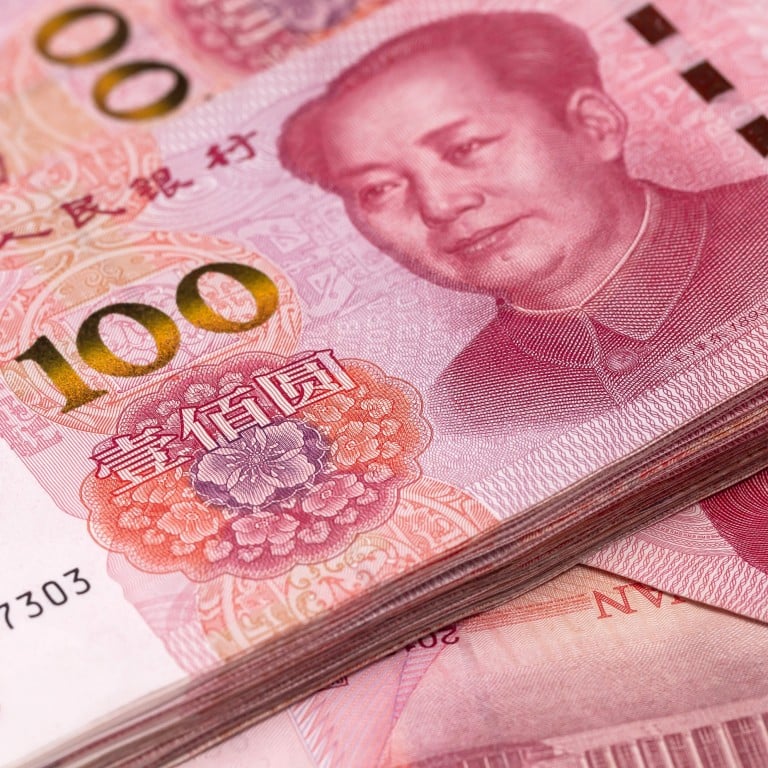
Vancouver businesswoman sues for US$200,000 she lost while trying to get money out of China
- Defendants say she was aware of risks in ‘illegal currency smuggling operation’, and her funds may have been taken by ‘unknown third party or government actor’
- The lawsuit and response, whose claims have not been proven, highlight the challenges that Chinese currency control laws pose to those trying to export funds
But the four defendants deny that the funds lost by plaintiff Sarah Wu ended up in their hands after what they said was an attempted “illegal currency smuggling operation” to get money out of China and into Canada.
Instead, they said, the money “appears to have been taken or confiscated by an unknown third party or government actor”.
[The] defendants devised a scheme to bilk funds from ethnically Chinese Canadians, by promising them a means to exchange [funds] out of the [People’s Republic of China]
One of the defendants, businesswoman Weihua Xiao, said in a court filing that she had offered to consult “various middlemen” who could assist Wu with the transaction, and she expected a commission in return.
But Xiao denies any contractual duties to Wu, and says her assistance was only offered on a “best efforts basis”.
Neither the claims in the lawsuit nor those in the response have been proven in court.
But both filings highlight the rules about exporting money from China, which imposes a US$50,000 annual limit on such transactions.
Vancouver has long been a favoured destination for wealthy mainland Chinese and their funds.
Wu’s lawsuit, filed with the Supreme Court of British Columbia on May 4, says the Chinese currency controls made it difficult to get funds into Canada.

“Knowing this, the defendants devised a scheme to bilk funds from ethnically Chinese Canadians, by promising them a means to exchange [funds] out of the [People’s Republic of China],” it says, alleging that the defendants “absconded” with Wu’s money.
In addition to Xiao, the defendants are her husband Jie Su, and Su’s father Deshun Su and mother Shangying Wang.
Wu says she was introduced to Xiao in December 12, 2019 by a mutual acquaintance, and that Xiao told her of a strategy to get money out of China by transferring funds through Chinese bank accounts held by Xiao, her parents-in-law, and others.
“Ms Xiao agreed to be personally liable for the repayment of Ms Wu’s funds in full,” Wu’s lawsuit says.
Two successful transactions allegedly followed, involving 100,000 yuan (US$15,500) that Wu says she entrusted with Xiao on the day they met, and 400,000 yuan (US$62,000) on October 2, 2020.
Judges: CIBC bank supports clients who break China’s cash-export laws, to buy Vancouver homes
But on October 15, Wu says Xiao approached her with a way to get the equivalent of US$200,000 out of China, agreeing that she and her husband would be “personally liable” for Wu’s funds.
Wu says that under the terms of the alleged guarantee, the couple were to grant her a mortgage in the same amount for real estate they owned in New Westminster, BC.
Wu says she subsequently made eight transfers worth about 1.34 million yuan to Xiao, Deshun Su, Wang and another person named Jundong Huo.
But Wu says she never received repayment in Canada, and a mortgage in her favour was never registered against the properties.

In response, the defendants deny ever owing money to Wu, or agreeing to grant the mortgage.
“The plaintiff knew the smuggling operation was risky and is improperly trying to hold the defendants liable for her own loss,” they said in a June 7 response.
The filing goes on: “Ms Xiao knew of certain individuals who could play the role of middlemen [and] offered to assist the plaintiff by consulting with various middlemen and passing on instructions of the plaintiff.
“Ms Xiao’s only expectation was to earn a small percentage commission or fee if the illegal currency smuggling operation succeeded.”
Chinese online feud spills into real life, as woman is stabbed inside Vancouver courtroom
To the extent that Xiao had any contractual duties to Wu “it was only to assist with [the] illegal currency smuggling operation on a best efforts basis”, and none of the other defendants had any contact with Wu, the response said.
“The defendants deny that any of them ever took or misappropriated funds from the plaintiff at all,” it said.
There was no fraud, and Wu “was attempting to profit or gain financially from smuggling money out of China contrary to the laws of China and the laws of Canada”, the pleading said.
Wu is seeking reimbursement equivalent to 1.34 million yuan (US$208,000), an injunction against the disposition of the New Westminster properties, interest, and damages.
In an interview on Wednesday, lawyer Russ Robertson, representing Xiao and the other defendants, emphasised that the pleading did not assert when Xiao became aware that the operation from which she stood to benefit was illegal.
“I can’t say to what extent she [Xiao] was aware of these laws,” said Robertson.
Wu’s lawyer did not respond to an email seeking comment. No date for a trial has been set.
Meng ‘contractually bound’ to pursue secrecy for HSBC evidence
China is not generally able to enforce its currency control laws in Canada.
A 2014 wrongful dismissal lawsuit brought against Canadian bank CIBC by financial adviser Guiyun Han Ogden described how transfers out of China that exceeded US$50,000 were facilitated by structuring them into a series of smaller transactions by multiple account holders.
A BC Supreme Court judge said “it was a practice CIBC supported. There is no issue about this”.
The technique is known as “smurfing”, because of its use of multiple small actors cooperating to achieve a single goal.
After a trial and appeal, the Ogden-CIBC case was eventually dismissed by consent of both parties in 2017 before a retrial could take place.


